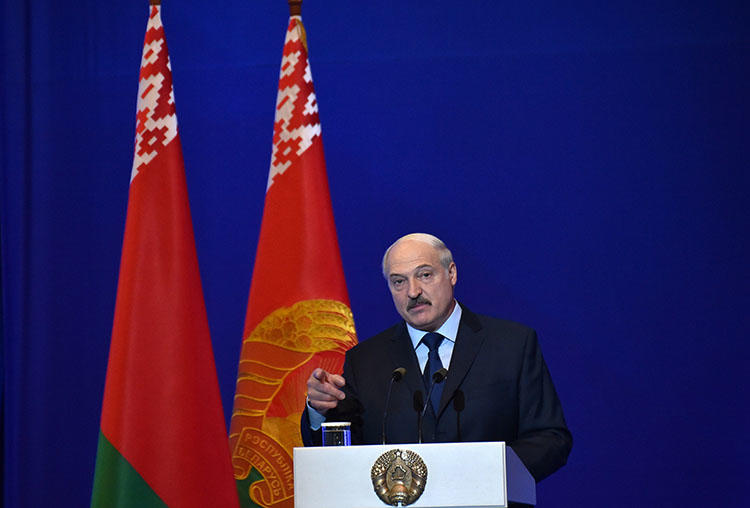Kiev, June 8, 2018–The Committee to Protect Journalists today called on the Belarusian parliament to reject proposed laws that could further censor the media in the country. The Prosecutor General’s Office is drafting a bill on “fake news,” and the lower house of parliament separately is considering amendments to the media law.
The bill being drafted by the Prosecutor General’s Office would allow the state to prosecute persons who spread “fake” information on the Internet, according to the independent Belarusian news site Tut.by and the state-owned BelTA news agency, both of which cited Belarusian Prosecutor General Alyaksandr Kanyuk.
Separately, in April the Belarusian parliament’s lower house approved in its first reading draft amendments to the country’s media law that would tighten government control over news websites and social media networks, the U.S. Congress-funded Radio Free Europe/Radio Liberty (RFE/RL) reported.
“The Belarusian government has jumped on the bandwagon of ‘fake news’ not because it wants to shield citizens from falsehoods but because it wants more power to decide what information they receive,” CPJ Europe and Central Asia Program Coordinator Nina Ognianova said from New York. “We call on parliament to reject these thinly veiled attempts at tightening censorship.”
Speaking to reporters in Minsk on June 6, Kanyuk said the bill is “necessary” to prevent “libel,” “nicknames [that] offend” people, and the spread of false statements that “turn public opinion upside down, which leads to big consequences,” according to Tut.by. Kanyuk said the bill could include language stipulating that violators be forced to pay a steep fine or face criminal prosecution.
Critics say that the draft bill may be used as yet another instrument for selective prosecution of journalists and media outlets.
The bill must pass at least two readings in the lower house of Belarus’s parliament before becoming law. A date has yet to be set for a first reading in parliament.
RFE/RL said the amendments to the media law would require authors of all posts and comments online to be identified, and comments to be moderated by website owners. The amendments would allow for social networks and other sites to be blocked if found in violation, RFE/RL added. The amendments need to pass at least one more reading in parliament’s lower house before they can enter into force, according to RFE/RL. Parliament has yet to set a date for a second reading.
